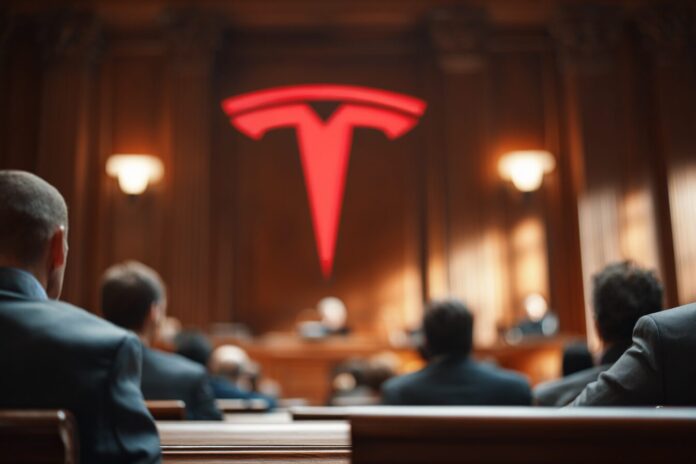Tesla’s Recent Legal Setback
Tesla has been ordered to pay more than $200 million in punitive damages after a Miami jury found the company partly responsible for a tragic fatal crash involving its Autopilot system. Most importantly, this case marks a pivotal moment in the intersection of technology and legal accountability. Because the incident highlights both technological shortcomings and human error, it forces us to reexamine the promises and pitfalls of advanced driver assistance systems.
Furthermore, this judgment sends a strong signal to the industry. The verdict suggests that even advanced technology is not immune to error and that companies must be transparent and proactively address potential risks. Therefore, this event is being closely watched by regulators, consumers, and other automakers alike.
A Deeper Look at the Tragic Case
The case stems from a 2019 accident in Florida, where the life of 22-year-old Naibel Benavides Leon was cut short while she was enjoying a starry night with her boyfriend, Dillon Angulo. In this heart-wrenching event, a Model S operating in Autopilot mode failed to respond appropriately at a T-intersection, tragically striking the couple. Because the driver admitted to being distracted by his cell phone at the time, responsibility was clearly shared between human error and potential system failure. This painful reminder of how distractions can amplify technological faults is discussed in detail by ABC News.
Besides that, the court uncovered serious concerns during the trial. The plaintiff’s legal team argued that Tesla failed to provide or deliberately withheld crucial video and sensor data recorded moments before the crash, which may have shed further light on the malfunction. As noted by CBS News, this data gap increased scrutiny over Tesla’s internal processes and protocols in handling critical information.
Punitive Damages and the Implications for Legal Precedents
Originally, the plaintiffs had sought a staggering $345 million, but the jury ultimately awarded $200 million in punitive damages. It is important to note that some sources, including an article from SF Gate, mentioned total liability amounts exceeding $329 million when added to other damages. Most importantly, however, this decision is among the largest legal judgments ever against a company for issues related to autonomous driving.
Because many similar cases against Tesla have been dismissed or settled quietly, this trial stands out as a turning point. The courtroom exposure of internal data and technical lapses not only deepens public skepticism but also sets a significant legal precedent. Moreover, this case might encourage other victims and their families to seek justice in court, which could lead to a broader reexamination of driver-assist technology in the legal arena.
Scrutiny on Tesla’s Autopilot: What Went Wrong?
Tesla’s Autopilot is specifically designed to assist with tasks such as lane keeping and adaptive cruise control, rather than operating as a fully autonomous system. Because drivers are repeatedly warned to remain engaged and keep their hands on the wheel, any deviation from these instructions can result in unfortunate consequences. Most importantly, the crash demonstrates how easily users might misinterpret marketing claims, leading to over-reliance on a system that is still in development.
Furthermore, the case underscores how distractions, like the use of cell phones while driving, can exacerbate the limitations of current automated technologies. Legal analysts have emphasized that such incidents may spur the industry to focus more on user education and safety measures. As detailed in discussions on Hacker News, user behavior remains one of the toughest challenges in the advancement of autonomous vehicle technology.
Broader Impacts on Tesla and the Automotive Industry
This verdict arrives at a time when Tesla is expanding its portfolio, including plans for a driverless taxi service in multiple cities. Because the judgment casts a shadow of liability on its Autopilot technology, Tesla now faces increased reputational and financial risks. Most importantly, this case will likely lead to heightened regulatory scrutiny not just for Tesla but for all companies developing automated driving technologies.
In addition, the fallout from this decision serves as a cautionary tale for the entire automotive and tech industry. Other automakers must now bolster their safety measures, enhance transparency about system limitations, and invest in more rigorous testing protocols. As mentioned on CBS News, this ruling could very well mark the beginning of stricter legal and regulatory frameworks surrounding autonomous vehicle technology.
Regulatory Changes and the Future of Car Technology
Most importantly, legal experts believe that cases like this will accelerate regulatory initiatives around automated driving. Besides that, government agencies could soon introduce more stringent rules regarding data disclosure, driver engagement monitoring, and how automakers describe the capabilities of their systems. Because transparency and rigorous testing are critical, any ambiguity in these areas may spur further legislative action to protect public safety.
Furthermore, the case has ignited discussions on how legal frameworks must evolve to keep pace with fast-changing technology. As regulators and lawmakers analyze the implications of this ruling, they may also consider revising product liability laws to ensure that all stakeholders in the autonomous vehicle market are held to high standards of safety and accountability. Detailed analysis on regulatory shifts has been discussed in several sources including CBS News and industry debates on Hacker News.
Conclusion: A Stark Warning for the Future
The $200+ million verdict is not only a financial blow to Tesla but also a stark warning for the future of autonomous technology. Most importantly, it reinforces the principle that technological advancement must be accompanied by strict safety standards and transparent communication. Because the integration of automated systems in vehicles is still evolving, this decision highlights the need for continuous improvement and accountability from tech companies.
Therefore, as society races towards a future of greater automation, legal and regulatory frameworks must keep pace with these advancements. The lessons learned from this case are clear: accountability, transparency, and a commitment to safety are non-negotiable. As Tesla and other automakers move forward, stakeholders must ensure that innovation does not come at the cost of public safety and trust.



